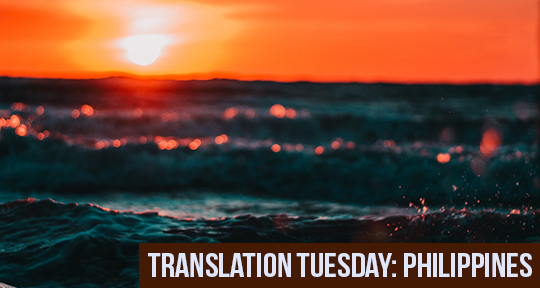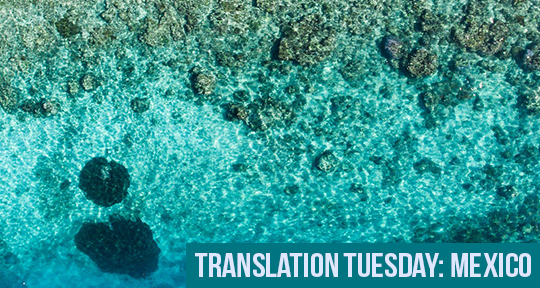In the first Translation Tuesdays column of 2023, Cebuano poet Cindy A. Velasquez take us to sea as we find our bearings in the new year. With a sensuousness at once personal and geological, Velasquez’s poems look for a sense of connection in water bodies, drifting continents and connecting islands. Start your year of reading voraciously—and widely—with us here every week!
“I first read Cindy A. Velasquez in Kabisdak: Cebuano Literary Lighthouse, edited by poet Michael U. Obenieta, and later on, in her first collection Lawas [Body]. Lawas was in so many ways antithetical from the poetry collections of Velasquez’s contemporaries within Binisayâ’s school of feminist poetics in particular, and the literary ‘Bisaya-sphere’ in general. The Oliverian lucidity is rich, far from being rife and banal, a contrast to the Instagram-Pinterest school of ‘poetry’ or the ‘hugot’ impulse that perpetually plagues the local spoken word and performance poetry scene. The islands and coastlines left and missed are seascapes we have never been to but have always known. And then, there is Dong, a recurring or haunting character almost always addressed like an apostrophe, whom the poetic I-persona, Day or Inday, perpetually yearns for.
Velasquez’s body of works is a lingering on bodies of women and water as well as a story of love, romantic, familial, platonic. Oceanic in topicality, her poems could be read through the lens of ‘sea-poetry’—a literary tradition from Homer, Shakespeare, Whitman, to the British Romanticists writing about the English channel and even Derek Walcott—very male, mostly white, very Western. Be that as it may, I find the act of reading Velasquez an evocation of the tender eroticism of Syria’s national poet Nizar Qabbani, the meditative ease of Brazilian neosymbolist Cecília Meireles, and the hydropoetic enigma of T’ang dynasty Taoist elegist Ts’ao T’ang.
But she doesn’t try to be any of the above. Her writing is her own accord; she is a poet of her own island.”
—Alton Melvar M Dapanas
The Reason
Theory of continental drift: the continents were once one,
bound to each other, and we have been told that the origin
of one is also another’s. But to birth new homelands,
the world has devised tremors deep in its own core.
So fret not when now and again, as you hold onto
my hand, it would swiftly quiver until you let me go.
Why is it better to love only one
I.
You gazed at the dimmed skies, enraged once more
for the moonlight was found wanting
then I told you: “Would you be more pleased if this world
had two moons? READ MORE…




